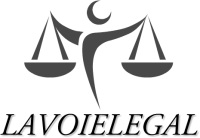Posted by Chantal Lavoie - 29 November 2015
Avago’s acquisition of Broadcom received a first phase conditional clearance from the European Commission on 23 November 2015. The $37 billion deal is the largest to date in the semiconductor industry. Avago and Broadcom are manufacturers of semiconductors at global level. The transaction did not raise horizontal competition concerns as the parties’ businesses are essentially complementary. Avago manufactures custom-built chips for analog wireless integrated circuits, enterprise, storage and industrial segments whilst Broadcom makes “off-the-shelf” chips for the broadband and connectivity segments.
The European Commission did have competition concerns with respect to the vertical relationships between the merged entity and “switch chip” manufacturers. This is because Avago supplies some of Broadcom’s competitors with technology to allow fast data transmission between chips. There was a concern that Avago might be inclined to withhold access to this technology, which is used by switch chips manufacturers, in order to reinforce its leading position in the “switch chips” market.
The remedy offered by Avago to address this concern consisted in entering into commercial agreements with other “switch chip” manufacturers to provide access to the “necessary intellectual property on reasonable terms”. The Commission’s press release does not provide further information on what these ‘reasonable terms’ are, whether agreements have been entered into with a finite number of manufacturers and whether new entrants will benefit from similar access terms. Once published, the Commission’s decision should shed further light on these points.
Such behavioral remedies have become increasingly common practice in the EU in high-tech sector mergers where access concerns are identified. Note that this practice is more unusual in the US. This transaction was in fact cleared in the US following expiration of the HSR waiting period without action taken by the FTC.
The Avago/Broadcom EU clearance follows a number of very recent EU clearances in the semiconductor industry. In October, the European Commission’s unconditional cleared Intel’s acquisition of Altera. The Commission considered the vertical relationships between Intel's contract manufacturing services and Altera's activities in the supply of certain types of semiconductors. Ultimately the Commission did not find competition concerns as several competitors are active at both upstream and downstream level whilst Intel holds a ‘very limited position’ and Altera’s demand for such services is ‘of limited importance’. In September, the European Commission also cleared NXP’s acquisition of Freescale, subject to NXP’s divestment of its radio frequency business. Both parties were found to have essentially complementary semiconductor portfolios, save in relation to radio frequency power transistors where they were two largest players and close competitors.
The Avago/Broadcom case details can be found here.
